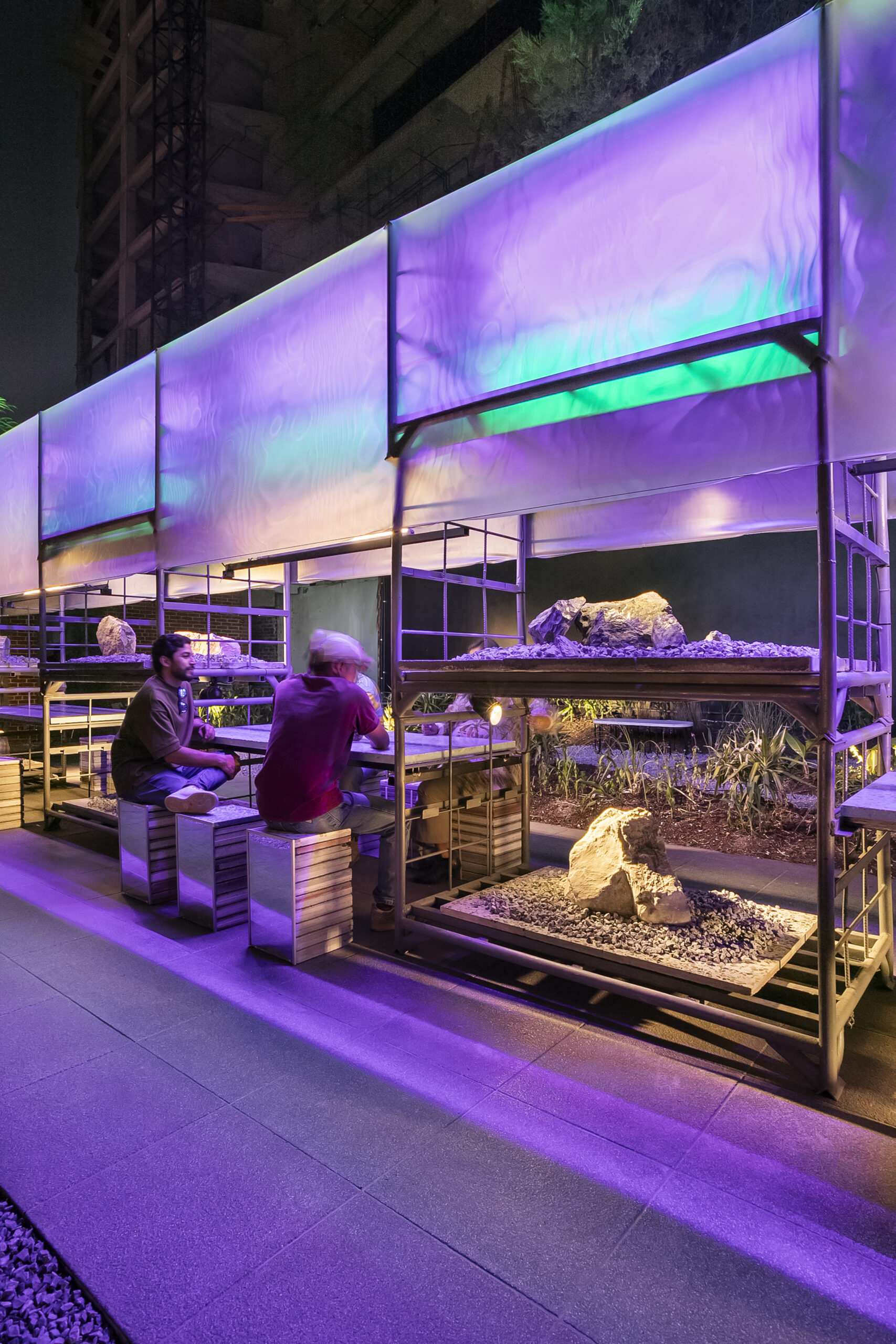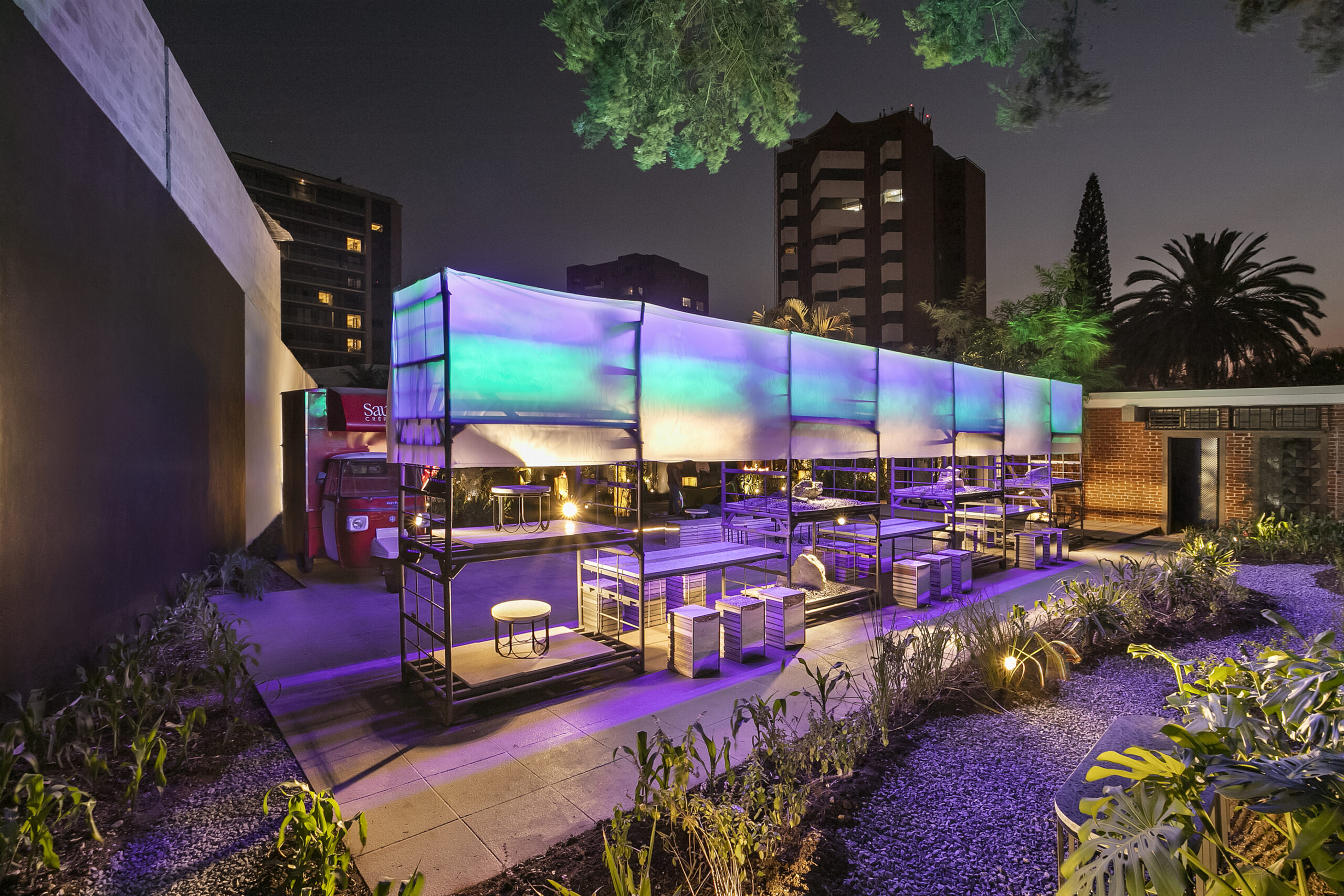In developing countries, there is an abundance of inspiration to propose projects that, beyond mere technique and aesthetics, challenge paradigms and generate impact. When designing, we pose various questions: Can a space transform the conventional perception of a material? Is it capable of reconfiguring human relationships? Can Guatemala embrace its diversity? Is the future of the garden, as we know and treat it today, inevitable? Should the garden be limited solely to decoration? These questions prompt us to reflect.
Deconstruction emerges as the best path to construction. Thus, we start from a pavilion that is not only a communal table but also a museum, a lamp, a piece of furniture, a space, and flooring platforms, among other things. For us, blurring the boundaries between things is a metaphor for contemporary life.
Our communal table represents our quest to explore shared experiences among Guatemalans. Social fabric is reflected not only in the typology of furniture but also in its materiality. We make granite the protagonist, not only showcasing its finished beauty but also displaying its process and the majesty of its raw material. Granite is not just a durable material; within it lies a millennia-old natural history. Recognizing the value, energy, and life of objects is essential.
Finally, we work with materials and plants that are often considered ordinary, inviting appreciation for their value beyond economic cost, transforming the perception of beauty, if only for a moment. It’s not what we see, it’s how we see it.
Collaborators
Andrea Monedero
Eduardo Gutierrez
Francisco Perez
CategoryArchitecture, Installation
LocationCiudad de Guatemala/Guatemala City
ClientDesign House
Year2024
ProgramDesign Pavilion



